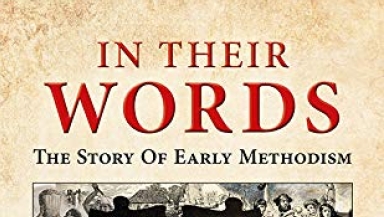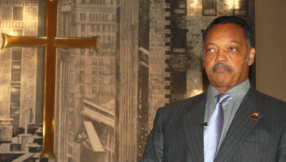
The Methodist movement has been one of the great works of God in Christian history. Through the Wesley brothers John and Charles, the UK church – firstly in England, then further afield including America – was rescued from a dead conformity and given back its spiritual wings. It wasn't all plain sailing, to say the least: those early years were marked by hostility from the establishment, internal divisions and personal failures. But Methodism survived and became a mighty engine for spiritual renewal.
Most Christians probably don't know too much about those early years. John Wesley was born in 1703, Charles in 1707. We would probably have to be fairly dedicated Methodists to sit down with a thick biography or church history of the period. So a new book by historian Gary Best is a gift; perhaps literally, as it's attractively produced, full of pictures and an easy read.
Where it scores particularly highly is in its use of original material, reflected in its title: In Their Words: The Story of Early Methodism. Best is an expert; he has written several books on Methodism and is a former Warden of the New Room in Bristol, the oldest surviving Methodist chapel in the world.
He tells the story of the Wesleys and their associates – including George Whitefield – briefly though informatively, but most of his book is made up of quotes from their own letters, diaries and memoires. This gives it an
extraordinary sense of immediacy: we're there as we read it.
There are plenty of gems, and all sorts of nuggets of information. I didn't know about John and Charles' brother Samuel, for instance, a highly regarded teacher who supported them both financially; he died young. Neither did I know that their father Samuel loathed Epworth, where Wesley tourism is big business, or quite how close young John came to dying in that famous fire. We can still read John's 22 daily self-examination questions with
profit ("When did I last speak to someone else of my faith?" "Did I go to bed on time and get up on time?") and the book is liberally sprinkled with Charles's verses.
There are really useful chapters on the gospel as it was understood by the early Methodists and on the divisions between Calvinists and Arminians that blighted relationships. There are sections on their attitude to slavery, with horrifying examples – in their own words – of the ill-treatment of slaves; the Wesleys loathed slavery, Whitefield not
so much.
The growing role of lay preachers and the emergence of Methodism as a separate church are also themes, as is its separate establishment in America – the Wesleys thought the colonists had legitimate grievances, but as doctrinaire conservatives were resolutely opposed to rebellion. George Washington told American Methodists: "Mr
Wesley I know; I respect Mr Wesley; but Mr Wesley, I presume, never sent you to America to interfere with political matters...Now you go and mind your proper work: preach the gospel and leave politics to me and my brethren."
The book left two lasting impressions on me. One is just how hard those pioneers worked. We might vaguely know about John's tremendous mileage, most of it on horseback, but he wasn't alone in driving his body to its limits. The baker and lay preacher Alexander Mather nearly killed himself with overwork.
Another is the extraordinary violence they faced, in a very violent time; they tell stories of near-lynchings in an entirely matter-of-fact way. Here is John Furz: "As soon as I began to preach, a man came straightforward and presented a gun to my face, swearing that he would blow my brains out if I spake another word. However, I continued speaking, and he continued swearing, sometimes putting the muzzle of the gun to my mouth, sometimes against my ear. While we were singing the last hymn, he got behind me, fired the gun and burned off part of my hair."
John Wesley's melancholy marital history is there; he made a disastrous match with Molly Vazeille, who abused him physically, once being discovered dragging him about by the hair. When they separated he wrote to her, "If you were to live a thousand years twice told, you could not undo the mischief which you have done..." But he was in all likelihood a terrible husband. A letter to his sister shows he could be crassly insensitive to people's feelings: "I believe the death of your children is a great instance of the goodness of God to you. You have often mentioned how much time they took up. Now that time is restored to you and you have nothing to do but serve the Lord...without distraction."
This is the kind of thing that brings history to life, and it's one of many such windows on the past in this excellent book.
In Their Own Words: The Story of Early Methodism by Gary Best is available here.













